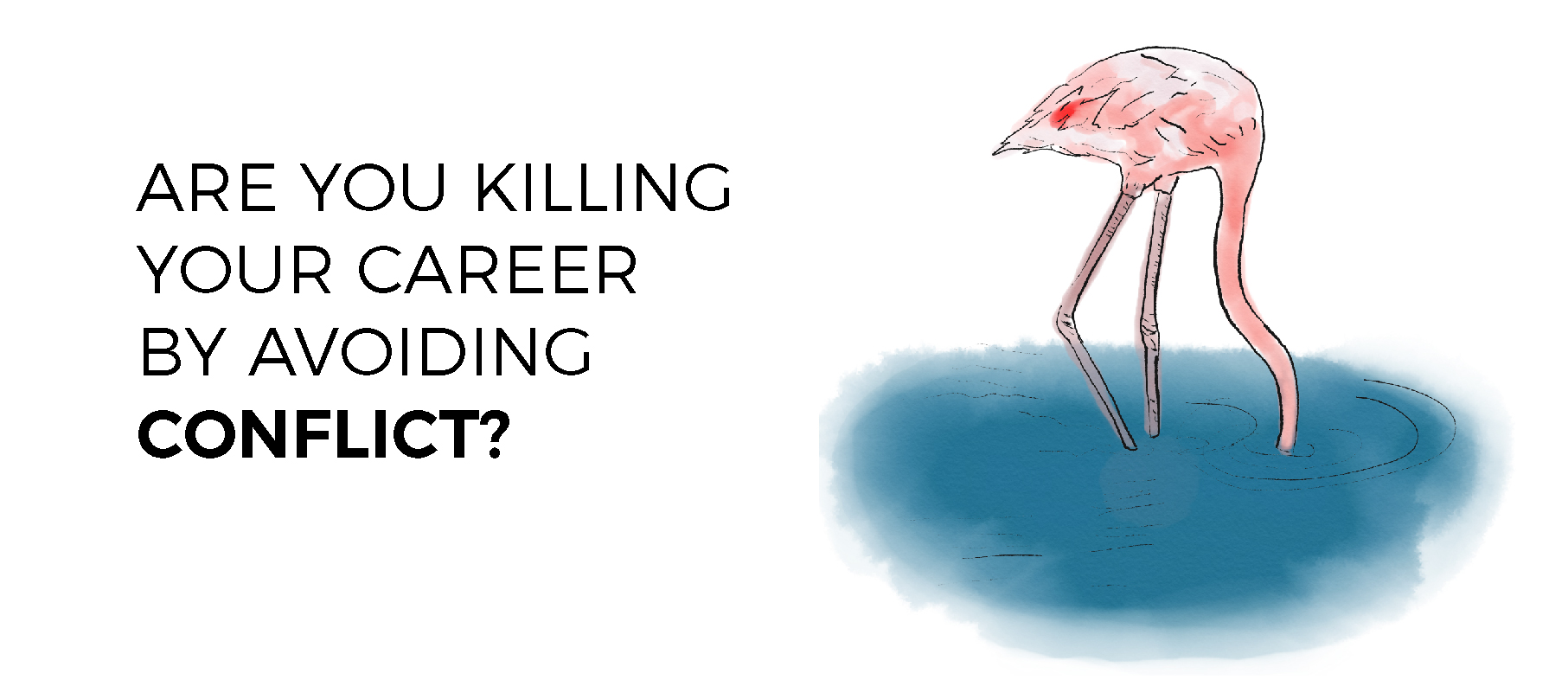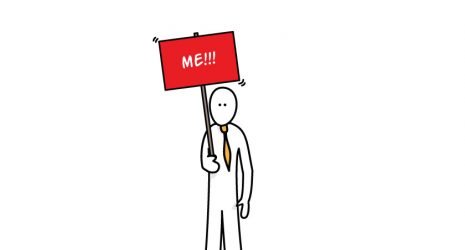Are You Killing Your Career By Avoiding Conflict?

Bob is the CEO of a thriving construction company. The only trouble is he works 75-hour weeks, because he “picks up the pieces” when his key leaders drop the ball. Yet he hasn’t made it clear they need to own their work.
Sharon is the SVP Sales at a mid-sized software company. Her salespeople are highly compensated, yet continue to miss their numbers. And their compensation hasn’t been reduced.
What do both leaders have in common?
They’re avoiding conflict.
How Your Brain Handles Conflict
Many of us have been socialised or learned as adults that conflict is “bad” and in order to succeed, we should appear optimistic and positive at all times. Yet while this avoidance of conflict leads to superficial harmony, it denies what is really going on, and undermines genuine trust.
When conflict occurs, many leaders (like Bob and Sharon) have a tendency to participate in it versus lead through it. It’s comfortable to do this, because our brains are wired to want to belong. Fear of ostracism leads to fear of conflict… but when we avoid conflict, it has a tendency to escalate
The state of conflict or friction in the workplace (or life) is something I call the Critter State. We dive into Critter State when we feel threatened. Any time there’s conflict, the animalistic instincts in our limbic and survival systems kick into gear. This undermines communication and teamwork — and fuels aggression. All of this leads to even more issues.
Here’s what to do:
1. Unpack How Your Culture Creates Conflict, And Address It.
Chances are good you’ll find:
- Recurring low/incomplete communication, leading to mis-matched expectations and misunderstandings in general, so make sure communication is actionable, accurate (have the communication “receiver” echo back what they heard) and complete (ensure dependencies and contingencies are being considered)
- Infrequent or incomplete feedback, leading to people not knowing if they are on or off track
- No consequences for dropped accountability, so the pattern repeats.
Follow the above links for brain-based tools to help in each scenario.
2. Know Your Conflict Avoidance Strategy.
Avoiding conflict comes in three flavors:
- Passivity—doing nothing and hoping the problem will go away, or waiting for the actions of others to fail,
- Overly compliant and trying not to rock the harmony boat of the relationship versus trusting that the relationship will be stronger when ideas and opinions are discussed honestly,
- Overly controlling without including time for discussion and connection.
While each of these strategies has a time and a place where they are effective, they will damage results, morale, and sustainability if they aren’t stopped. Through coaching Bob and Sharon came to understand their conflict avoidance pattern. Next, I needed to give them some tools to move through conflict more comfortably…
3. Ask Open-Ended Questions to Design A Shared Outcome.
This will enable you and the other person(s) to move from the Critter State and into the prefrontal cortex (woo hoo! Now you’re in your Smart State). To design the better-feeling reality that you all want you’ll use an Outcome Frame. An Outcome Frame helps you create a strong vision of the state you want to be in. Here are the basic questions:
- What would you like?
- What will having that do for you?
- How will you know when you have it?
- When, where, and with whom would you like it?
- What of value might you risk or lose?
- What are your next steps?
Use this tool to discover how your team can move forward in conflict. Have them answer these questions in order to assess where they really want to be. The Outcome Frame is a terrific conflict prevention tool as well.
4. To Stir Up Healthy Conflict, Use A Piñata.
Consider yourself the “Piñata Maker.” Offer potential solutions as if you were hanging up a Piñata and expecting everyone to take a hit at it. No whacks to the idea, no candy comes out. This mindset may help your team to not get too attached to an idea or solution before others have had their say. And at the same time, it’ll allow you a way to offer ideas for discussion before they are fully formed in your own mind. Work with your coach to make this collaborative solution-forming style feel safe and productive.
Recognise that when you are willing to have direct, non-judgemental conversations about topics like low accountability, blaming behaviour and boundaries, you are able to create powerful learning opportunities for your team and for yourself. Scan your relationships and identify with whom you are holding resentments, festering worries about some of their behaviours, or withholding some other information out of worry they may not like what you have to say or because you have written them off.
Net-Net
- Learn why your culture has conflict avoidance, and put the tools mentioned above in place to reduce it.
- Understand your conflict avoidance strategy. With this awareness you can “catch” it, become conscious of it, and choose to use our conflict navigation tools.
- Use an Outcome Frame to set a plan for the future, and understand where your team wants to be.
- Use a Pinata when you need to mix it up!
How will you overcome workplace conflict by using these tools?
Author: Christine Comaford




